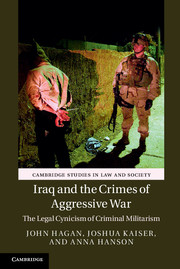1 - The Reign of Terror
Published online by Cambridge University Press: 05 July 2015
Summary
A CONTENTIOUS CENTURY
Modern Iraq was created by foreign powers following World War I, when Britain unified three administrative regions of the former Ottoman Empire – Mosul province (northern Iraq), Baghdad province (central Iraq), and Basra province (southern Iraq) – under the control of a king. The British mandate ended in 1932, but the country continued to be ruled by the same royal family until they were overthrown in 1958 with the establishment of the Republic of Iraq. Fast forward a half century and the Islamic State in 2014 staged a symbolic renunciation of the British-drawn border between Syria and Iraq. This border was marked with an earthen berm that the soldiers of the previously named ISIS (or ISIL) bulldozed. They then tweeted a photograph of their victorious fighters dancing and waving flags in celebration of their ambitions to create a new caliphate. Saddam Hussein would have been enraged.
The Iraqi people lived under the authoritarian rule of the Ba'ath Party and Saddam Hussein for more than three decades. The Ba'ath Party first seized control of Iraq with its pan-Arabist ideology in 1963. It then briefly lost and later retook control in 1968. Saddam assumed complete control of Iraq and the Ba'ath Party in 1979, resulting in nearly a quarter century of his violent nationalist autocratic rule. His criminal militarism consumed massive amounts of national resources fighting domestic insurgencies, real and imagined, mostly arising from perceived threats connected to ethnic-religious identities and Iraq's complicated history.
The population of Iraq is strikingly diverse, with many groups tracing their history back hundreds if not thousands of years, long before Britain and France drew its post–World War I borders (Batatu 1978). Iraq's underlying group identities and social structures were historically grounded in differences of religious practice, such as the split between Sunni and Shia adherents of Islam. Added to this were a multitude of other groups, including the Yazidis, Sabean Mandeans, Jews, Shabak Shia, and a variety of Christian groups, including Assyrians, Chaldeans, Syriacs, Armenians, Catholics, and Protestants (Davis 2005).
- Type
- Chapter
- Information
- Iraq and the Crimes of Aggressive WarThe Legal Cynicism of Criminal Militarism, pp. 17 - 41Publisher: Cambridge University PressPrint publication year: 2015

